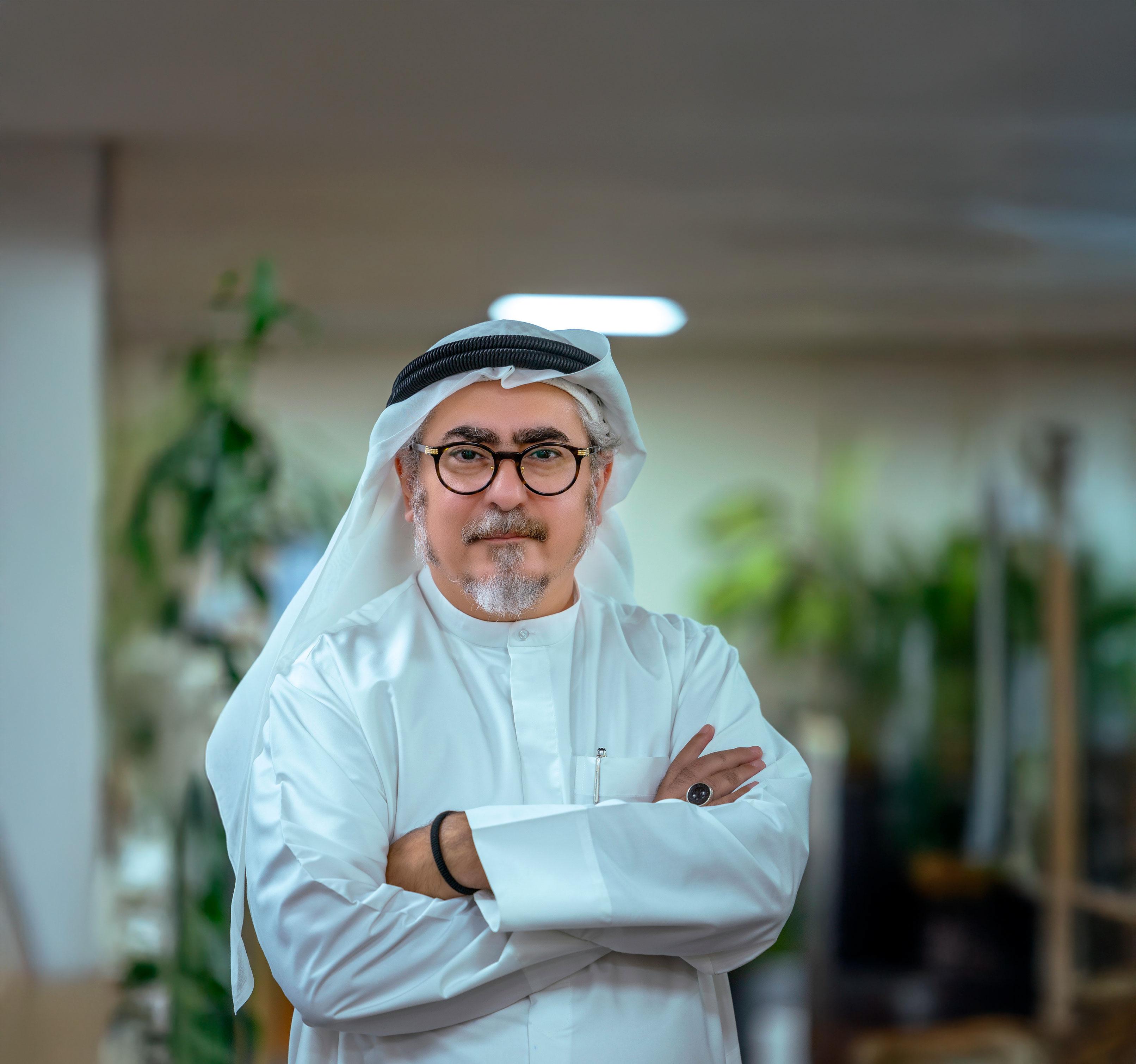
5 minute read
The Role of Engineers in Society and Industry
Dr. Waddah S Ghanem Al Hashmi BEng (Hons), DipSM, DipEM, MBA, MSc, AFIChemE, FEI, MIoD, FIEMA Chairman of the OSH Federal Committee in the UAE and Senior Director in the Energy Sector
“I am a strong believer in engaged scholarship and believe that academic learning, if not translated into industrial (i.e. vocational application) action is at times like preserving a box of chocolates until they reach the precipice of expiration.”
Advertisement

Many have asked me as a leader—and -especially a director for the past 15 years of my career—what was the most critical training or certification I obtained that helped me succeed in my various roles in industry, both in my full-time job, as well as my extracurricular business and industry-based activities. I have been working for just over 28 years now and have had around seven different roles, mainly in an energy company based here in Dubai, but also some consulting in the distant past. My work has been mainly in the Environment, Health and Safety (EHS) space, but I have also branched out into so many other areas such as sustainability, business continuity planning, corporate governance, operational excellence, reflective learning and so on.
I am a strong believer in engaged scholarship and believe that academic learning, if not translated into industrial (i.e. vocational application) action is at times like preserving a box of chocolates until they reach the precipice of expiration. There should be a spiral of learning and knowledge for everyone, and therefore it is the processes of learning that I have taken more significant interest in, especially in the past 15 years, rather than the knowledge itself. I have thought long and hard about the question regarding success and realized that it was my foundations in engineering and what studying engineering taught me about “the process of thinking.” The first thing you learn as an engineer is your purpose, which simply is to either solve a problem or find a way of making something easier for people. You want to get from one side of the riverbank to another so we build a bridge.
So, when you build a bridge what you start to learn, besides the obvious—the engineering mathematics, physics and calculations and the design etc.—Is every purpose it will serve, and how many it will serve. So, after establishing the problem and looking at solutions, scoping the solution comes after that. Then you consider the various options, understanding resourcing to address the scope, and then build the solution to the original problem. The devil then comes in the details, which is managed by a multi—disciplinary team of engineers and architects. While they all come from different disciplines, they are all engineers who have been trained on the same foundations-some in the same core subjects—but most significantly, all have been trained to think in a systematic way, in a logical way, applying lateral thinking and scientific approaches.
Thus, it is amazing how an engineering team, programed to talk the same functional language with thinking founded on the same set of principles, can come together and work on a practical challenge. In side all the first—year engineers including the mechanical, electrical, civil and so on. We even did several courses together in the second year, at which point we started to specialize. These were courses like energy studies with the electrical engineers and geotechnical engineering with the civil engineers and advanced thermodynamics with the mechanical engineers.

It has been 20 years since I have had a job that required my engineering discipline skills as a significant part of the role. Most of my peers are similar, and many engineers don’t use much of their discipline engineering knowledge beyond the first 5-10 years of their career. I am an environmental engineer who graduated some 30 years ago with a BEng (Hons). Graduating from Cardiff in South Wales in the UK was a great experience because only two to three years before I joined, the program had been a materials and mining engineering program. With the closure of most mines, a new type of engineer was to be created-one who could address these challenges of having to clean up much of the mess that was made by the mining and extraction industries beforehand. We were impelled to repurpose land, equipment and skills for the future!
Engineers are agile. From an engineering program designed to build mines and operate them, to a program that is designed to close and decommission these same mines and their associated facilities, you need an engineer for both. And you can transform the engineer for one purpose to the other relatively quickly. This is the fascinating thing about engineers and is in fact why engineers can, later in life, do many other professions such as in IT, finance, management and so on. In fact, although they are considered to have comparatively lesser people skills, in many European companies in the 2000s engineers with diverse organizational experiences were even employed in HR roles.
I have even used my engineering skills to help set up companies. As an expert on governance and leadership, much of the structuring work I did was based on my structured engineering thinking. As a director, the design of jobs that I had within my remit in EHS, Sustainability, Operational Excellence or Marine Assurance was based on the core skills, rational thinking and framework type approaches that I was trained in and continued (in my own time) to explore over the years.
With the advent of the world of digital developments, including the power of Artificial Intelligence (AI) and Machine Learning (ML) that this special issue explores, engineers are, I believe, torn between two generations. The older generation understand and appreciate the first learning principles in engineering. When I did my engineering degree back in the 90s, we still used paper and weighted-nib pens to produce engineering drawings. I did in fact start to use a very basic model of AutoCAD software towards the final years.
Programming at the time we still used a program called Fortran 77, although Basic Languages were being used by then was one of those skills that I never used again in my life. But in saying this, given that I had to develop code, I understand the very basics and more importantly principles of programming! I have felt, especially working with my kids today as they prepare themselves for university soon, that AI tools like ChatGPT and so on, are very much two—edged swords. On the one hand it helps, no doubt, with productivity and getting things done faster; I am of using ChatGPT for instance, but what I would say is most critical for an engineer to understand and appreciate is that regardless of the use of technology to aid them in their tasks, they remain ultimately responsible and accountable for what they, as an engineer, produce. It is that sense of ownership and personal accountability that must not be lost. and graduate as engineers to engage in experiential learning and reflective practice, while developing their interpersonal skills, to enable them to become effective-in whatever they chose to do after they graduate!

Finally, engineers have been generally stigmatized for not being as emotionally intelligent or empathetic as they could be. I would agree that engineers can be very rational and less creative at times. That does not mean that engineers are not effective in human interactions and social sciences. It is the nurturing of these personal, interpersonal and social skills which engineers must seek to develop within themselves. In my view, engineers have the opportunity to combine these rational thinking and “engineering” skills with more social and personal skills to allow them to become more holistic individuals. If they can achieve this balance, engineers can more efficiently solve problems by drawing on socially adaptive approaches to help.





